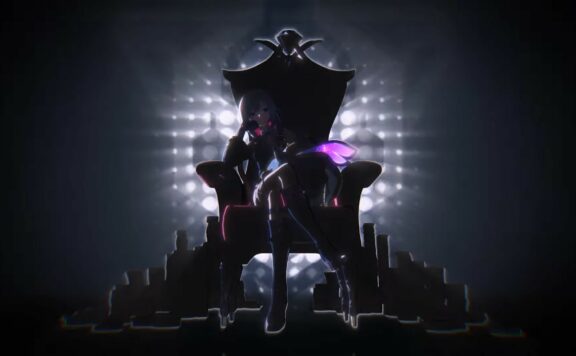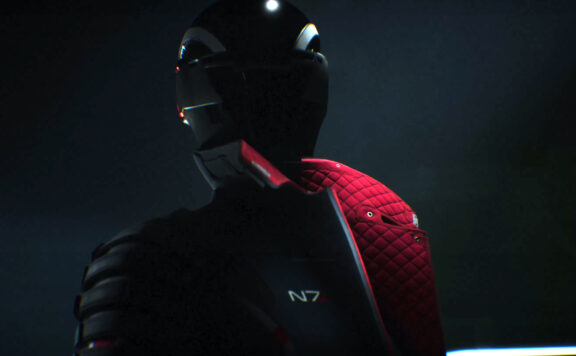While we still yet to see the gameplay of the upcoming Dragon Age: Dreadwolf, the fourth game in the beloved fantasy series from Bioware, the fans of all things Thedas had a chance to return to the world of qunari and vile Tevinter magisters in a recent series from Netflix, Dragon Age: Absolution.
The events of the series take place some time after those of Dragon Age: Trespasser, with the Inquisition having been already dissolved by the Herald of Andraste. However, before the advisors of the Inquisitor get to put away their weapons and start searching for a certain bald elven mage, they send a couple of agents on a daring task: stealing a certain artifact called the Circulum Infinitus from the hands of Tevinter’s Black Divine.
Luckily for Fairbanks and Hira, the aforementioned agents, it doesn’t require a trip into the heart of Minrathous as the artifact is being researched and examined in the city of Nessum that holds the Divine’s summer palace. Still, Tevinter is not to be underestimated, and our two heroes form a team, inviting along an elf rogue and ex-slave Miriam, Orlesian warrior Roland, dwarven Lord of Fortune Lacklon, and light-hearted Qunari mage Qwydion.
Now it’s up to them to pull off this heist, sneak into the villa, quietly steal the artifact, and bring it back to Orlais for the Inquisition’s safekeeping. What could go wrong, right?
As it turns out, a lot. Absolution is a tale of companionship and letting go of the past – or being unable to do so. Note: this impression piece contains vague spoilers for the show’s plot without discussing them in detail.
If you have missed Thedas, you will be happy to know that Absolution is full of little references and nods to the trilogy, from the namedrops of certain locations like the Hinterlands to the mentions of Inquisition, Corypheus, the Blight and the Herald of Andraste and, of course, a really brief appearance of Cassandra, Leliana, Josephine and Cullen. In fact, I’d say that you are almost expected to have a certain knowledge and a level of investment into the franchise for the entirety of the story to start having more nuance than “Magisters bad, blood magic bad, good guys steal shiny”.
To that end, Dragon Age: Absolution does not spend a lot of time building an intricate story, exploring the past of our characters or explaining the geography or the rules of the world but rather immediately throws our party of misfits into engaging action scenes, featuring all the flashy moves you would expect from a fantasy series. Backflipping rogue brandishing double knives, a variety of magic spells that wreak havoc across the screen, nice choreography when it comes to the combat sequences featuring the warriors – the show has it all.
This kind of deal is to be expected, of course: the 2-hours long show doesn’t contain enough time to explain all the intricacies of the world of Thedas, from Chantry and Andraste to the Veil and the rules behind magic. However, in my opinion, the show went too far on simplification, making Absolution more of a generic quirky fantasy adventure over a faithful adaptation.
The part of the show that suffered the most is, tragically, the magic system. Don’t get me wrong; it is beautifully animated. Some of the spells have stepped out right from the games, and it has been a joy to watch mages duke it out on the screen. However, when it comes to Dragon Age, magic is not only a power to cover the battlefield in flames. It is also all the things related to it: the inherent danger of demonic possession, the religious fear, the social aspect, and the hundreds of years of oppression, even if we ignore the whole Apostate/Maleficarum thing and only look at the most upstanding of mages. Perhaps, if the main cast consisted of characters from Tevinter, that lack of care towards magic use could be waved away, as the Imperium is much more welcoming to mages.
But with the teammates coming from all walks of life, including ex-agents of the Inquisition, a religious organization that was literally JUST dealing with the Mage-Templar war and the threat of an ancient Tevinter magister, it feels almost wrong at how cavalier the show is in this regard.

On the other hand, to ensure that new watchers grasp that Blood Magic Is Bad, a Templar Knight-Commander threatens a Tevinter Magister to report the use of Blood Magic and Necromancy to the Divine. Considering Tevinter’s overall stance on Blood Magic and the hierarchy, the threat is ridiculous at best and the Necromancy bit would make Dorian Pavus, a ‘Vint companion from the Inquisition and a self-respecting teacher of Necromancy, laugh his mustache off.
Speaking of Templars, the show does not explain what the Order is about nor does it give Tassia any special abilities besides being really good with her sword & shield and remaining the only sane person on the screen. If you expected the local Knight-Commander to have a degree of Paladin-like skills to be able to take on the rampaging mages and not get cooked in the process, you can forget about it.
This back-and-forth, not providing enough context while also expecting you to understand the intricate details, touches upon its every aspect. There are moments of depth, like the two Tevinter characters not being able to break off from their upbringing despite believing in doing the right thing or summoned-Spirit-turning-Demon, but they require you to have knowledge the series doesn’t readily give.
Additionally, until the very end, it exists completely as a side-story with no clear connection to the bigger plot of Dragon Age. And even that last bit requires you to have beaten Dragon Age 2 to understand, preferably with at least a healthy venture into Inquisition. Dragon Age: Absolution starts in the middle of a long story and comes to a close a step further, with no clear end in sight, providing more questions than answers. Let’s hope the heavily implied Season 2 learns from the mistakes and shortcomings and gives everyone something to look forward to.
The show tries really hard to make things easy to understand if you are a newcomer to the series while also giving enough attention to the long-time fans but doesn’t manage to accomplish either. Dragon Age: Absolution exists in that uncomfortable spot where it is too superfluous to provide a satisfying lore addition for long-time fans while also not being welcoming enough to hook in newcomers by trying to appease the already existing audience.







